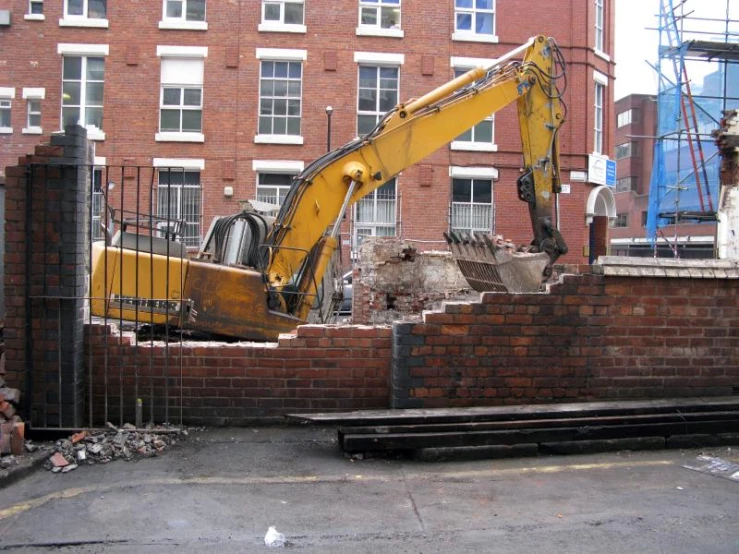1. Introduction
In the construction industry, excavators are one of the key pieces of equipment essential for project success. They not only improve construction efficiency but also handle various complex earthworks. With advancements in technology, the functions and performance of excavators continue to enhance, making them increasingly vital in modern construction. This article will explore the applications, types, advantages, and future trends of excavators in construction.
2. Types of Excavators Used in Construction
Excavators come in various types, each suited for different construction needs.
Crawler Excavators
Crawler excavators are known for their stability and excellent traction, making them ideal for rugged and muddy terrains. They are typically used for large earthworks and mining operations.
Wheel Excavators
Wheel excavators are favored for their flexibility and high-speed mobility, making them suitable for urban construction, allowing quick movement between different job sites.
Mini Excavators
Mini excavators are compact and perfect for working in tight spaces, such as urban pipe repairs and small construction projects. Their flexibility and versatility make them an ideal choice for many construction teams.
3. Key Features of Modern Excavators
Modern excavators are equipped with advanced technologies and safety features, enhancing operational efficiency and safety.
Advanced Technologies and Safety Features
Many modern excavators are equipped with GPS and automation systems that monitor work progress in real time, boosting construction efficiency. Improvements in fuel efficiency and the introduction of eco-friendly options allow excavators to reduce operating costs while adhering to sustainable development requirements. Safety is paramount in the construction industry; modern excavators often come with various safety technologies, such as rollover protection systems, sensors, and monitoring cameras, ensuring the safety of operators and those nearby.

4. Benefits of Using Excavators in Construction
Utilizing excavators for construction offers numerous significant advantages.
Improved Efficiency, Cost-effectiveness, and Versatility
The speed and precision of excavators make earthworks more efficient. Compared to traditional manual methods, excavators can complete more work in a shorter time, accelerating project timelines. Although the initial investment in excavators may be high, their long-term maintenance costs and efficient performance can yield significant returns on investment. The time and labor saved make excavators very economical. Additionally, excavators can not only dig soil but also be equipped with various attachments for grading, lifting, and other tasks, making them indispensable on construction sites.
5. Choosing the Right Excavator for Projects
When selecting an excavator, considering multiple factors is crucial.
Factors to Consider and Consulting Equipment Experts
Project size, soil type, and budget are key factors influencing the choice. Large earthworks typically require more powerful crawler excavators, while urban projects may be better suited to wheel or mini excavators. Consulting experienced equipment experts can help companies make informed decisions to ensure they select the most suitable excavator for their project needs.

6. Best Practices for Operating Excavators
To ensure optimal performance of excavators, following best practices is necessary.
Training and Daily Maintenance
Operators must undergo professional training and certification to ensure they understand safety protocols and the correct use of equipment. Regular checks of hydraulic systems, oil, and tires can help identify potential issues and extend the lifespan of the excavator.
7. Case Studies
Through successful construction projects, we can see the practical value of excavators.
Successful Projects and Real Feedback
For instance, in a large infrastructure project, the use of crawler excavators significantly improved work efficiency during extensive earthworks, leading to early project completion and high praise from clients. Many construction managers and operators report that excavators are easy to operate and highly efficient, making them an indispensable tool in their construction processes.
8. Future Trends in Construction Excavators
Looking ahead, the excavator industry will see more innovations.
Technological Innovations and Sustainability
With the development of automation technologies, excavators will become smarter, capable of operating autonomously in more complex environments. The emergence of electric excavators will also drive the industry towards sustainable development. Eco-friendly designs will play a vital role in future excavator development, as companies increasingly prioritize the environmental performance of their equipment to meet global green building standards.
9. Conclusion
In summary, excavators play an indispensable role in the construction industry. They enhance construction efficiency, reduce costs, and demonstrate exceptional performance across various applications. As technology continues to advance, investing in modern excavators will yield better project outcomes and competitive advantages for construction companies. Businesses should actively consider using excavators in future projects to achieve higher efficiency and safety in construction.


